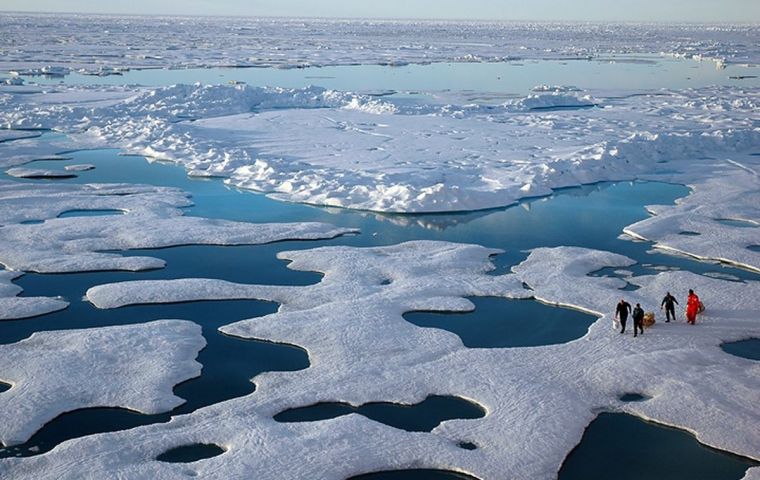MercoPress. South Atlantic News Agency
June was the hottest month in 140 years, says NOAA
 Average temperatures in France, Germany, and northern Spain, which have experienced a heat wave, hit as high as 18 degrees F above the normal range
Average temperatures in France, Germany, and northern Spain, which have experienced a heat wave, hit as high as 18 degrees F above the normal range June 2019 was the hottest in 140 years, setting a global record, according to the latest monthly global climate report released on Thursday by the US National Oceanic and Atmospheric Administration.
The report said that the average global temperature in June was 1.71 degrees Fahrenheit above the 20th-century average of 59.9 degrees F (15.5 degrees Celsius) and marks the 414th consecutive month in which temperatures were above the 20th-century average.
Nine of the 10 hottest Junes over the last 140 years have occurred since 2010, NOAA said.
Europe, Asia and Africa, as well as the Hawaii and US Gulf of Mexico regions experienced their hottest Junes on record.
Average temperatures in France, Germany, and northern Spain, which have experienced a heat wave, hit as high as 18 degrees F above the normal range, with temperatures in France hitting as high as 114 degrees F (46 degrees C).
Meanwhile, the global average sea surface temperature was 1.46 degrees F above the 20th-century monthly average of 61.5 degrees F (16 degrees C), tying with 2016 as the highest global ocean temperature for the month on record while Antarctic sea ice fell to its smallest level on record, 8.5 per cent below the 1981 to 2010 average, NOAA data showed.
With year-to-date global temperatures setting records, NOAA said there is a 100 per cent chance that 2019 will end among the five warmest years on record, underscoring the need for governments to take collective action to stem a further intensification of climate change impacts.
“Action is urgently needed at the world, federal, state and local levels to rapidly cut fossil fuel pollution and to protect and rebuild naturally stored carbon,” said Dr Phil Duffy, climate scientist and president and executive director of Woods Hole Research Centre.
Heat waves currently gripping the United States, Europe and elsewhere are likely to get worse, according to a report released this week by the Union of Concerned Scientists.
The report found that in the United States, the average number of days per year with a heat index above 105 degrees F (41 degrees C) would more than quadruple to 24 by mid-century and increase eight-fold to 40 by late century.
”By the end of the century, with no action to reduce global emissions, parts of Florida and Texas would experience the equivalent of at least five months per year on average when the ‘feels like’ temperature exceeds 100 degrees F (38 degrees C), with most of these days even surpassing 105 degrees,” said UCS senior climate scientists Kristina Dahl.




Top Comments
Disclaimer & comment rulesCommenting for this story is now closed.
If you have a Facebook account, become a fan and comment on our Facebook Page!